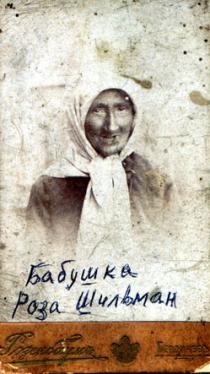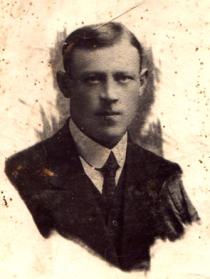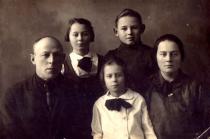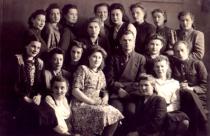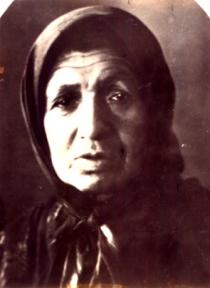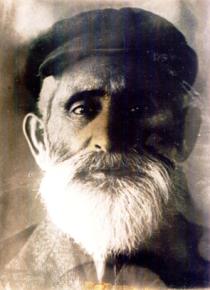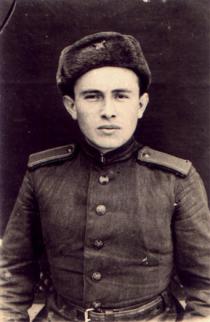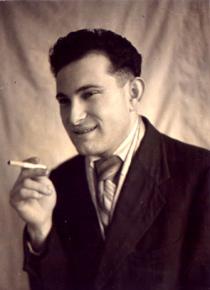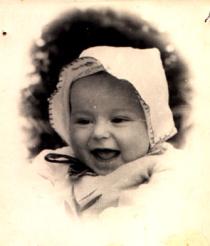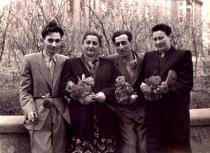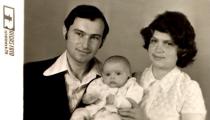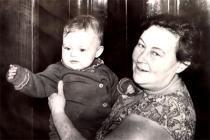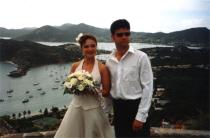My father Duvid Shylman. My father had this photograph taken to send it to his relatives. It is signed on the backside: 'For a good memory to my deserving respected Niece Clara Spivak and her family from uncle D.I. Shylman'. Berdichev, 1916.
My grandparents had 9 children: eight sons and one daughter. I don't know the names of my father's older brothers. There was a great difference in age between them. My father's sister Leika was about five years older than my father. She was looking after him and they were very close during their lifetime. My father Duvid Shylman was born in 1888 and was the youngest in the family. They were a poor family and they didn't have baby food for the baby. They wrapped bead in a cloth and gave it to the baby as a baby soother. My father told me that their family was very religious: there was Torah in the house, his father prayed and his mother lit candles on Friday. The family sat down to the table and although there was plain food they always celebrated Sabbath according to the rules. My father recalled how he and his brothers and their parents dressed up to go to the synagogue on Saturday.
All boys finished cheder in Belopolie, but they didn't continue their education. Older brothers moved to America in the early 20th century. My father didn't correspond with them since our country people couldn't acknowledge having relatives abroad. They were never mentioned in our family and I don't even know their names. Aunt Leika corresponded with them, but she perished during Holocaust and took with her everything she knew about them.
My father didn't get any education. He was a laborer in Belopolie and then constructed roads in Berdichev. Shortly before the revolution of 1917 he met my mother and in 1918 my parents got married. My mother told me they had a chuppah and there were klezmer musicians playing at their wedding. Shortly after their wedding my parents moved to Kiev from Belopolie. They rented an apartment in Podol. My father was a worker. Replaced pavements. My mother was a housewife.
Later my father went to work as a clerk at a plant, I don’t know how he managed to get this job, but I think that maybe his proletarian roots and that he could write and read played a decisive road. The plant constructed an apartment house for its employees and my father received a three-bedroom apartment in the center of Kiev not far from the plant. We lived in a two-storied house: there was a ground floor and we lived on the first floor. My father was very religious then. I don’t know what influenced my father, perhaps, this happened due to general historical tendencies when many young people, particularly workers at plants and factories, got overwhelmed with revolutionary ideas. In 1925 he became a communist and we stopped celebrating Jewish holidays at home. We began to celebrate Soviet holidays: 1 May, October revolution Day.

